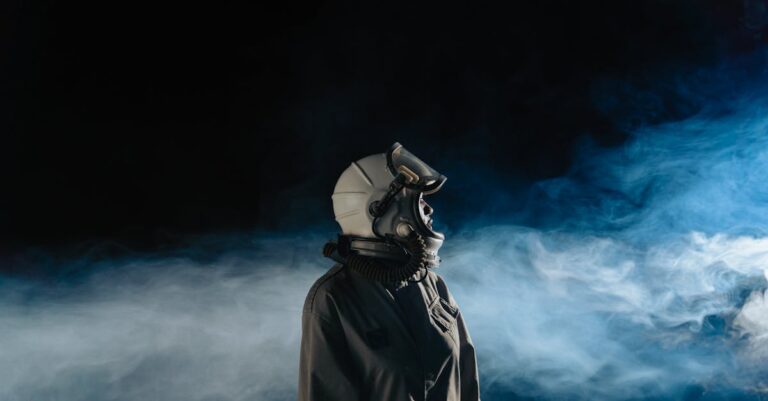
The sun beat down on the cracked earth, and the air smelled of dust and desperation. Elias Voss wiped his brow with a frayed handkerchief, his knuckles raw from days of digging. The camp sprawled before him—tents sagging under the weight of hope, men hunched over pans that gleamed like stolen silver. He’d left the war behind, or so he’d told himself, but the ghosts of bullets and buried bodies followed him here, whispering in the wind that carried the scent of gunpowder and pine resin.
“You’re staring at the same hole again,” said Mara, her voice sharp as a pickaxe. She crouched beside him, her boots muddy from the riverbank, where she’d been sifting gravel for hours. Her dark hair was tied back, but a few strands clung to her neck, damp with sweat. “If you’re looking for gold, you’ll find it in the dirt, not the sky.” She didn’t look up from her pan, her movements efficient, almost ritualistic.
Elias didn’t answer. He’d learned long ago that words were a liability. The camp was full of men who talked too much, who promised riches and vanished into the hills, their boots caked with mud and lies. But Mara was different. She didn’t talk about the future. She spoke in the present tense, like the river that carved through the valley—relentless, unyielding.
“This place is cursed,” someone muttered nearby. Elias turned to see Tom Grady, a wiry man with a scar running from his temple to his jaw. He’d been muttering about bad omens since the first week, when a storm had flooded the river and washed away half their supplies. “The land doesn’t want us here,” Grady said, his eyes darting toward the forest line. “You ever hear what happened to the ones who came before?”
Mara snorted. “They died like men. Not ghosts.” She scraped the pan, revealing a glint of yellow. Elias caught his breath. It was small, but it was there—a fleck of gold that caught the light like a promise.
“You see that?” he asked, but she didn’t answer. She was already moving, her boots crunching over gravel as she approached the river. Elias followed, his heart pounding. The water gurgled, cool and clear, reflecting the sky in shards. He knelt, his fingers trembling as he dipped his pan into the current. The gold was there, scattered like stars in the silt.
“You’re wasting time,” Mara said, her tone flat. “The river doesn’t care about your dreams.” But she stayed, watching him, her eyes narrowed. Elias didn’t know if it was curiosity or caution. Either way, he kept digging.
Days passed in a blur of labor and hunger. The camp grew tense, the men’s tempers fraying like old rope. Elias and Mara worked in silence, their routines a kind of pact. She taught him how to read the river—the way the current shifted, the color of the silt, the faint metallic tang in the air. He taught her how to track animals, how to read the stars when the clouds rolled in. They didn’t speak much, but their hands spoke for them, moving in unison as they panned for gold.
“You think it’s real?” Mara asked one night, as they sat by the fire. The flames crackled, casting shadows on the tents. Her face was half in light, half in shadow, like a carved statue. “The gold? Or the stories?”
Elias hesitated. He’d heard the tales—the miners who’d struck it rich and vanished, the legends of a hidden vein that could feed a town for years. But he’d also seen the wreckage left behind by those who’d chased false promises. “I don’t know,” he admitted. “But I need to find out.”
Mara studied him, her expression unreadable. Then she reached into her satchel and pulled out a small tin box. Inside was a single piece of gold, no bigger than a fingernail. “This is what I found,” she said. “It’s not much. But it’s real.” She held it out, and Elias took it, feeling the weight of it in his palm. It was cold, but it felt like warmth.
The next morning, the camp was gone. Elias awoke to an eerie silence, the usual sounds of clinking pans and muttered curses replaced by the creak of trees and the distant call of a hawk. He ran to the riverbank, his heart pounding. The tents were still there, but the men were gone. Only a few remnants remained—a discarded coat, a half-empty canteen, the faint smell of smoke.
“Where are they?” Elias demanded, turning to Mara. She was already gathering her things, her face set in grim determination. “They left,” she said. “Before dawn.” She didn’t explain why. Elias didn’t ask. He’d seen enough to know that fear had driven them out.
They packed quickly, their movements efficient, almost mechanical. The river was still there, but the camp was gone. Elias felt a pang of loss, but it was quickly overtaken by something else—curiosity. The men hadn’t taken everything. There were tools left behind, supplies scattered like remnants of a dream. And the gold—still there, waiting.
“We should go,” Mara said, her voice low. “Before someone else finds it.” But Elias didn’t move. He stood at the edge of the river, staring at the water, feeling the weight of the tin box in his pocket. The gold was real. The stories were real. And somewhere out there, beyond the trees and the hills, the truth was waiting to be found.
The journey took them deeper into the valley, where the air was thinner and the trees taller. They followed the river’s course, their boots sinking into the mud as they moved. Days blurred into nights, and the camp became a memory. But the gold was always there, just beyond their reach, like a whisper in the wind.
“You think it’s worth it?” Mara asked one night, as they sat by the fire. The flames cast long shadows on the trees, and the air was thick with the scent of pine and damp earth. “This life?”
Elias didn’t answer immediately. He looked at her, really looked at her, and saw the weariness in her eyes, the way her hands trembled slightly as she adjusted her coat. “I don’t know,” he said. “But I can’t stop now. Not when we’re so close.”
Mara nodded, but she didn’t smile. She turned back to the fire, her expression unreadable. Elias followed her lead, staring into the flames as the night deepened around them.
The gold was still there, waiting. And so were the stories—of men who’d come before, of those who’d vanished, of the secrets buried in the earth. Elias didn’t know what they’d find when they reached the end of the river, but he knew one thing: the journey was worth it. For the gold. For the truth. For the chance to leave something behind, something real.
And so they kept walking, their shadows stretching long in the firelight, their hearts full of hope and fear. The land was vast, and the stories were endless. But for now, they had each other—and the promise of gold.


